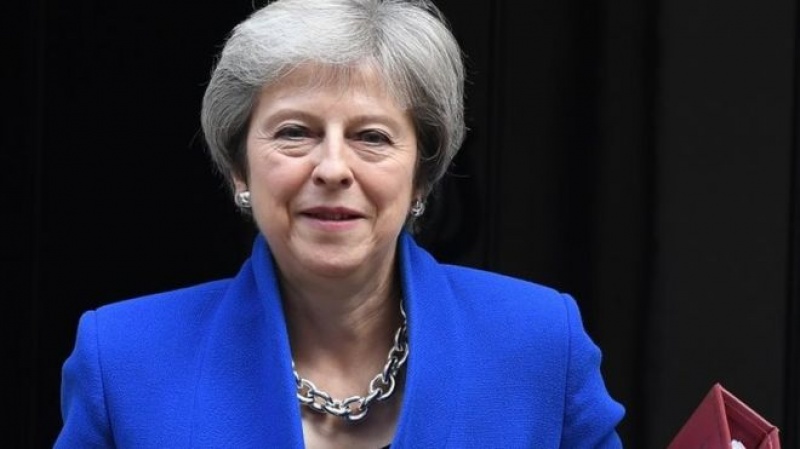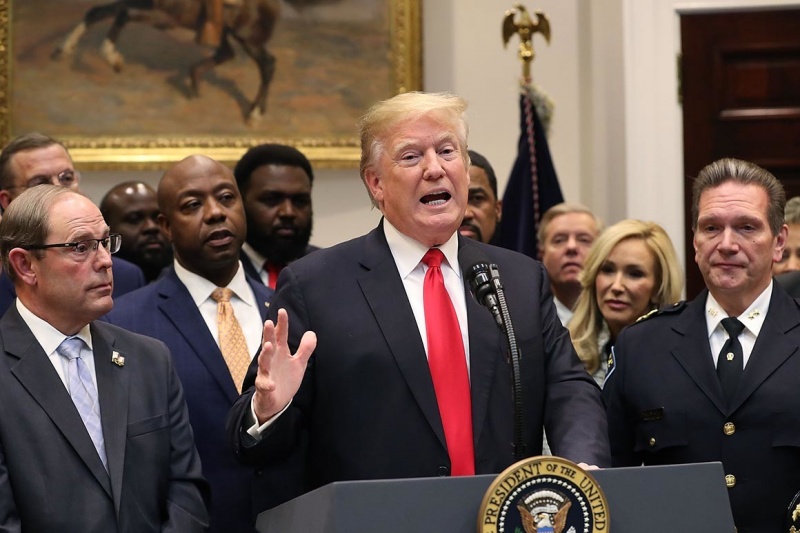
Theresa May is set to renew her efforts to sell her draft Brexit withdrawal agreement – saying it will stop EU migrants “jumping the queue”.
She will say migration will become skills-based, with Europeans no longer prioritised over “engineers from Sydney or software developers from Delhi”.
The prime minister will also insist to business leaders that her withdrawal deal has been “agreed in full”.
It comes as some Tory MPs continue to press for late changes to the deal.
Ministers from the remaining 27 EU countries are meeting in Brussels ahead of the deal being finalised on Sunday.
They are working on the political declaration setting out their future relationship with the UK.
There has been widespread criticism of the draft 585-page withdrawal agreement – setting out what the UK and EU’s future relationship could look like – which is set to be signed off at a summit this weekend.
Two of the prime minister’s cabinet ministers resigned over the proposed deal, while others are believed to be trying to change its wording.
Speculation continues over whether the number of Tory MPs submitting letters of no-confidence in Mrs May will reach the 48 required to trigger a confidence vote on her leadership.
What’s the PM’s next move?
Mrs May will join Labour leader Jeremy Corbyn in addressing the business lobby group the CBI at its annual conference in London.
She will tell them that her plan will provide a fair immigration system that will help young people in the UK get jobs and training.
She is expected to say: “It will no longer be the case that EU nationals, regardless of the skills or experience they have to offer, can jump the queue ahead of engineers from Sydney or software developers from Delhi.
“Instead of a system based on where a person is from, we will have one that is built around the talents and skills a person has to offer.”
She will also reiterate that she is not willing to reopen discussions with Brussels over the withdrawal agreement, saying “the core elements of that deal are already in place”.
She is due to say that she expects to hammer out a framework for a future trade relationship in Brussels this week, before signing off the deal at a summit on Sunday.
CBI president John Allan is expected to call for MPs to back Mrs May’s deal – despite it not being “perfect” – and warn of the consequences for businesses and the economy if the UK were to simply crash out of the EU.
Why are people unhappy with the deal?
The draft document sets out the terms of the UK’s departure, including how much money will be paid to the EU, details of the transition period, and citizens’ rights.
The transition period – which lasts until 31 December 2020 – will mean the UK is officially out of the EU, but is still abiding by most of its rules. During this time, the two sides hope to negotiate a permanent trade deal.
The UK and the EU want to avoid a hard Northern Ireland border whatever happens, so they agreed to a “backstop” – described as an insurance policy by Mrs May – aimed at achieving this if the sides cannot agree a trade deal.
The backstop would mean Northern Ireland would stay more closely aligned to some EU rules, which critics say is unacceptable. And the whole of the UK would be in a single custom territory – effectively keeping the whole of the UK in the EU customs union.
But some Brexiteer critics say:
• During the transition period, the UK will still abide by most of the EU’s rules
• The UK will not be able to avoid the backstop until they strike a better, permanent deal with the EU. This deal needs the EU’s consent
What is the latest Tory reaction?
Former Foreign Secretary Boris Johnson used his column in Monday’s Daily Telegraph to renew his criticism of the draft agreement, describing it as a “585-page fig-leaf [that] does nothing to cover the embarrassment of our total defeat”.
Calling for the scrapping of the Northern Ireland backstop, he added: “We should massively accelerate our preparations to exit on World Trade Organisation terms, with a new secretary of state responsible for all the cross-government work.
“There would, of course, be some disruption in that outcome, but by no means as much as sometimes predicted.
“And it is our failure to make proper preparations that has so gravely weakened our negotiations.”
Meanwhile, former Tory chief whip Andrew Mitchell has warned against trying to replace Mrs May.
He told the Times: “It will end making us look like we’re hunting the prime minister down as happened with Margaret Thatcher. It will do the party untold damage in the eyes of the public.”
And former Tory leader Lord Howard told BBC Radio 4’s Today programme that a vote of confidence would be a distraction.
He said MPs “should be concentrating on the document and its implications”.
Source : BBC


































